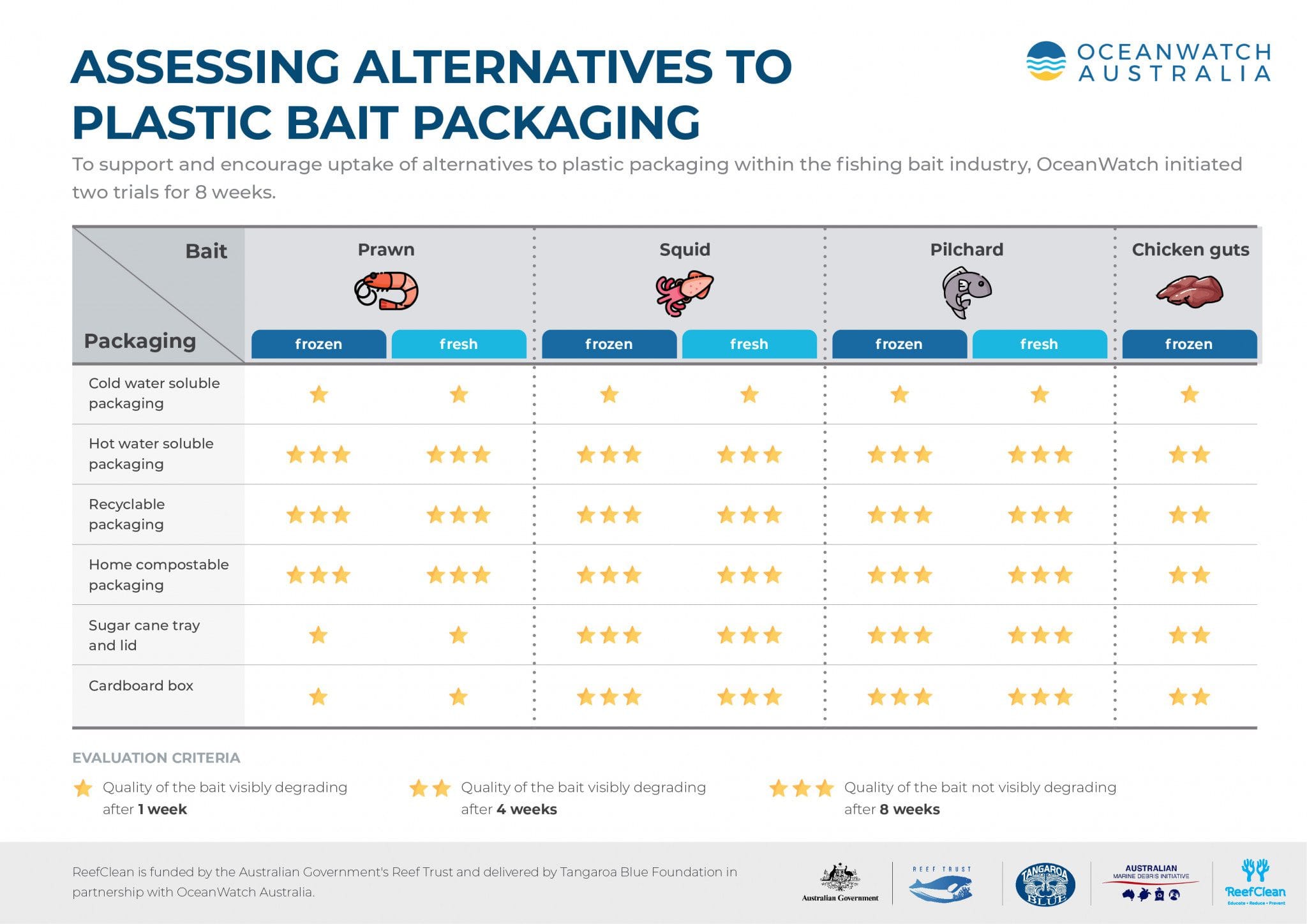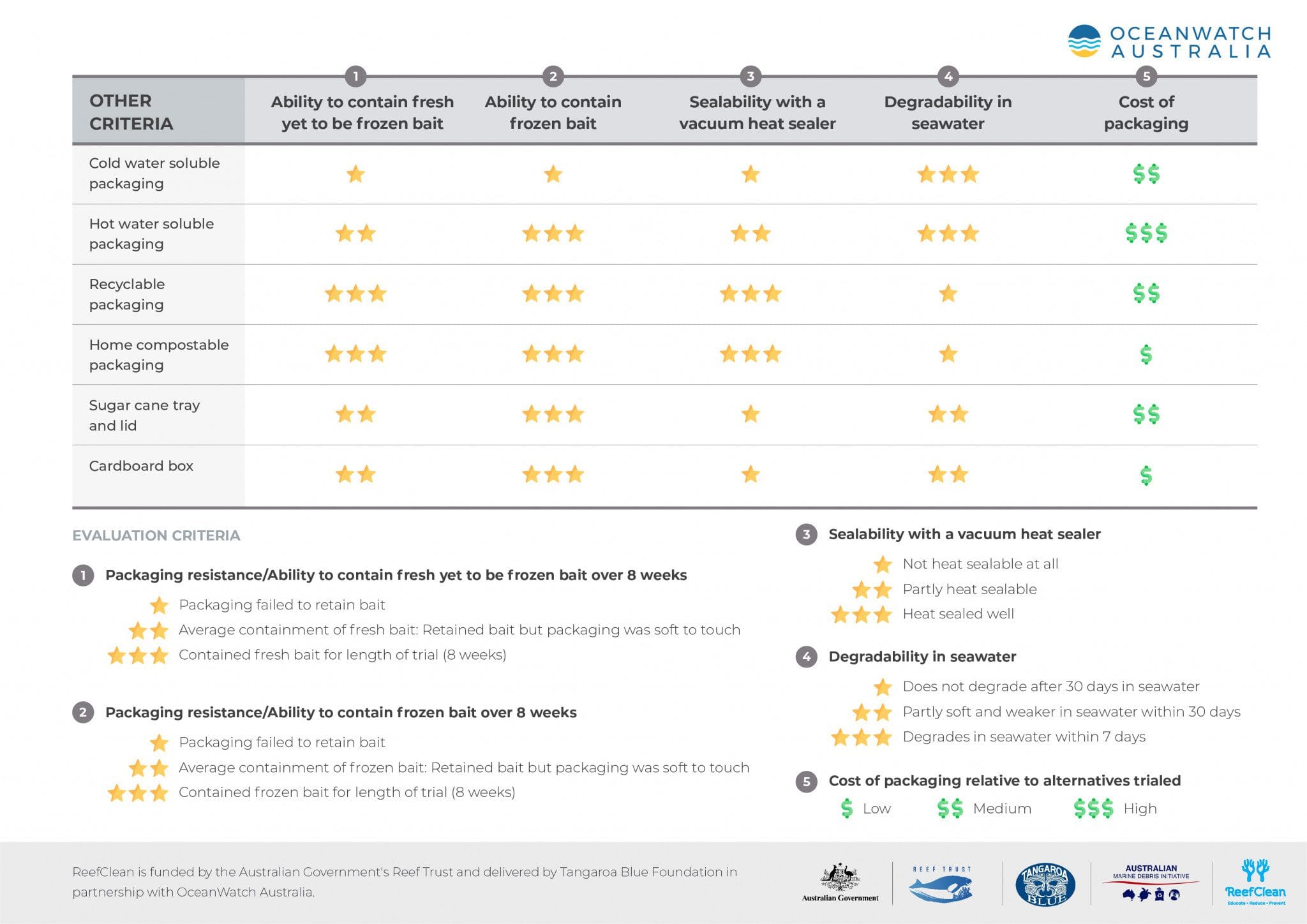OWA seeks to further the understanding of where marine debris originates by playing detective on focus items, the process of which is documented in Source Reduction Plans.
OceanWatch worked with the Tangaroa Blue Foundation on two Source Reduction Plans focussed on fishing-related bait bags and professional fishing-related light sticks as part of the ReefClean Program. Both projects have been designed through conducting a source analysis approach rather than working from a littering reduction perspective. Indeed, OceanWatch felt that this approach would allow for the adoption of new innovations which can work alongside traditional behaviour change mechanisms to do the right thing reducing the incidence of bait bags and chemical light sticks recorded on waterways.
BAIT BAGS
The bait bag source reduction plan allowed OceanWatch to understand the use of bait bags from multiple perspectives: bait supplier, packaging supplier, and final consumer.
Taking this understanding into consideration, OceanWatch carried out two trials. First, testing the suitability of the alternatives in which packaging was filled with various types of bait and stored in a commercial freezer for 8 weeks. Then, a degradability trial where alternatives were placed in cotton bags and immersed in seawater for 8 weeks. The alternatives that were identified included water soluble bags, compostable bags, sugar cane trays with lids and cardboard boxes. Both trials demonstrated that the tested materials performed differently under the conditions they were subjected to. Depending on its use, each alternative tested has merit.


As a conclusion of the report, OceanWatch considers that suppliers and consumers expectations need to be reset, innovators need support and packaging needs to meet national standards so confidence in labelling creates trusted alternatives. Then, by convincing a significant number of companies to use sustainable alternatives, it is possible to push the market to a tipping point where the environmental solution becomes a cost-effective norm. Businesses are the source of the problem and the heart of the solution.
Check out the final report here.
LIGHT STICK TRIALS
OceanWatch worked with Tuna Australia and the Australian Fisheries Management Authority (AFMA) on the professional fishing related chemical light sticks source reduction plan.
After interrogating AFMA’s data on the Eastern Tuna and Billfish Fishery usage and loss of chemical light sticks, OceanWatch and Tuna Australia designed trials hand in hand with long line fishermen. Trials were undertaken to test two designs of battery-operated light sticks as an alternative option to single use chemical lights.
Check out the video update from a professional long line Captain who took part of the trial here.
At the conclusion of the trials, both battery-operated light sticks tested presented some significant advantages to the participants, while also highlighting some practical and economic hurdles. One of the alternatives tested has been identified as more effective as the other one. Indeed, being brighter, its use results in a reduction in the number of lights needed for a similar level of catch.
In this report, OceanWatch listed recommendations that could reduce the occurrence of chemical light sticks found in Australian waterways. These recommendations include encouraging the industry to collect more fine scale data on CLS use, encouraging the industry to create a place where professional fishermen could share information internally around method and gear set-up with battery-operated light sticks, including CLS use in sustainable fishing certification, and encouraging more research on overseas sources of light sticks.
Check out the final report here.
ReefClean is funded by the Australian Government's Reef Trust and delivered by Tangaroa Blue Foundation in partnership with Oceanwatch Australia.
